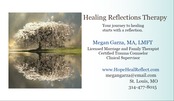|
A common misconception is that rapes must happen by force. People often visualize a bloody, battered victim who yelled and tried to fight back against a stranger who pulled them into the bushes. This is a very unlikely scenario for a variety of reasons, one being that 75-85% of sexual assaults are perpetrated by someone the victim knows, not a stranger. Often, the perpetrator is a friend or a loved one, possibly even a spouse or partner. Definitions of Sexual assault/abuse/rape all can include "lack of consent". When someone is drugged, unconscious, asleep, under the influence of drugs or alcohol, disabled and unable to understand the situation, or too young, or in a situation where they are compromised and unable to make a reasonable decision, they lack they ability to consent to sex. No resistance is necessary. Federal rape law is: "Penetration, no matter how slight, of the vagina or anus with any body part or object, or oral penetration by a sex organ of another person, without the consent of the victim."
State laws vary. Unfortunately, many people who are sexually abused are "frozen" with fear or dissociated at the time of their assault and are unable to fight, yell, or struggle. This sadly leads them to inappropriately blame themselves or for others to blame them for the abuse instead of the one truly at fault, the perpetrator.
0 Comments
April is Sexual Assault Awareness month
Depending on one's experience and perspective, many people will say either "sexual assault is rare. I don't really know anyone personally that it has happened to" or "Everybody gets sexually assaulted. It's not a big deal." Neither are true. It doesn't happen to everyone, but it does happen to a significant minority of people. About 20-35% of women experience sexual assault. Most meta-analytic research is on the higher end of this figure. You may see lower "1 in 5" stats coming out of more recent research from NCVS, (which though a robust study, has limitations in how it is done and tends to leave off the most vulnerable.) What we can glean from NCVS data is that sexual assault rates appear to be declining (this study is conducted at regular intervals). People are speaking up about it more. Other studies show men's views about sexual assault and related behaviors have changed considerably in recent decades and that abusive things that men once commonly did without guilt or shame is no longer the case. It is pretty remarkable to see the generational difference between what millenials versus boomers express in terms of misogyny. Both values and behaviors have changed about sexual assault as the public has become more educated and more brave people have opened up about it, reducing the shame that kept it a secret. Sometimes reporting rates increase when we get better at accurately defining and measuring it ( I.e. Sweden, military, St. Louis police) but that does not mean the rates of the crimes actually increase. The lifetime prevalence rate from the CDC & office for victims of crime showed about 43% of women are sexually abused at some point in their life. This takes into account both child and adult sexual victimization. 1 in 6 men are sexually abused before the age of 18. It is rarely talked about. Men often minimize the experience and will say it wasn't abuse or "it wasn't that bad" because a part of them experienced sexual pleasure from the event, but yet they may find themselves acting out in ways similar to most trauma survivors later on. For reference, about 55-70% of people have experienced a traumatic event in their lifetime. 5% of men and 10% of women will meet diagnostic criteria for PTSD at some point. If you want to know more on prevalence rates, look up David Finkelhor. If you want to know more about changing views, look up Mary Koss. If you really want to understand trauma and risk, Take the ACE survey. HTTPS://acestoohigh.com/got-your-ace-score/ April is sexual assault awareness month
The number one predictor of how well survivors do in the long run is their level of social support. How can you be of the most help? Listen. Believe them. Check in on them, even if you worry it will upset them (thinking no one cares upsets them more. They are likely already thinking about it anyway.) Tell them it is not their fault. Don't align with the abuser. Don't interrogate them. Don't tell them what they should or should not have done or what you would have done. Don't tell them to just "Get Over It" this message will set back their recovery a long ways and likely disrupt your relationship with them. Remember healing is a process, not a race. There is no end point that a person can speed toward to be "done." Recovery may take months, years, or decades, and healing will likely be a lifelong process of integration. Be patient. Be kind. |
AuthorSMegan Garza, MA, LMFT is a certified Specialist in Treating Trauma at a Supervisory level and is Licensed as a Marriage and Family Therapist. She specializes in work with sexual abuse survivors. Archives
June 2024
Categories |



 RSS Feed
RSS Feed